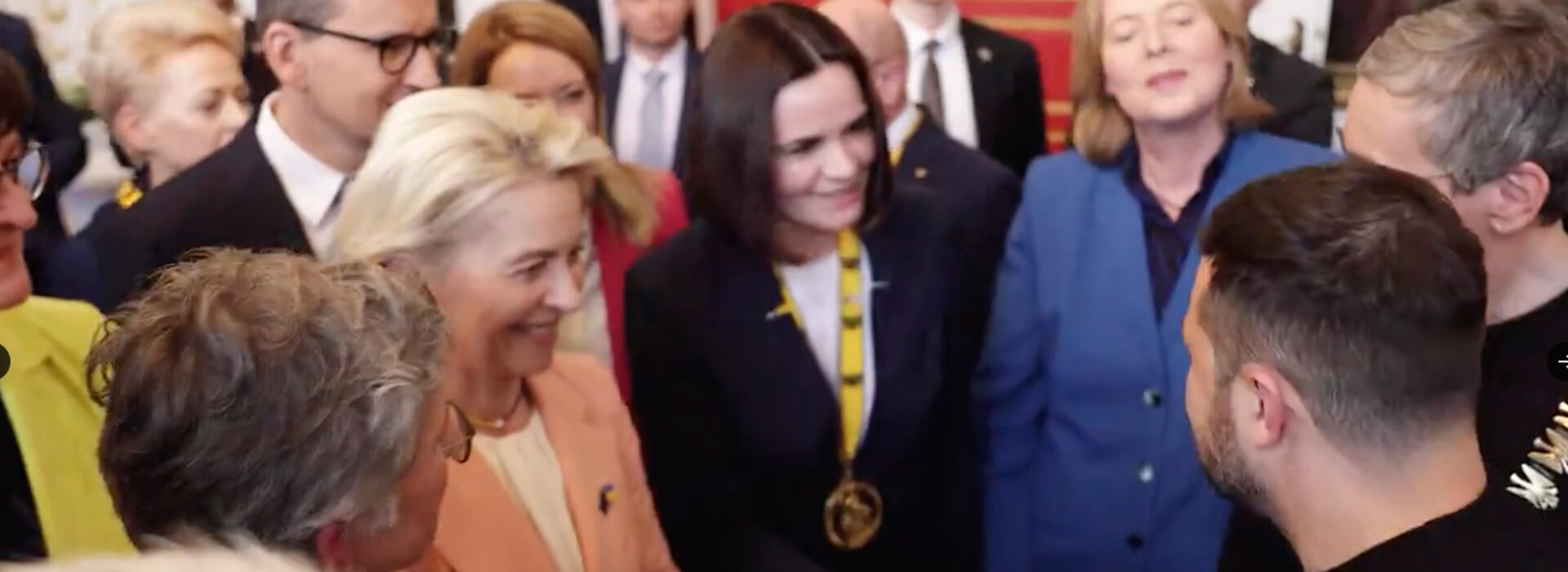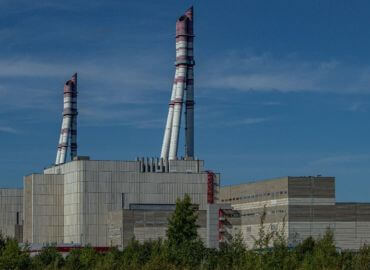- MILITARY DEVELOPMENTS
- POLITICAL DEVELOPMENTS
- HUMAN RIGHTS SITUATION AND INTERNATIONAL RESPONSE
- PROPAGANDA
MILITARY DEVELOPMENTS
Belarus Review (2023 edition, issue 2)
A weekly update on the ongoing political crisis in the Republic of Belarus prepared for you by the International Strategic Action Network for Security (iSANS).
The Lukashenka regime increases the intensity of military drills and plans to keep Russia’s military on its combat training ranges until at least 2023.
According to Belarusian investigators, Russia’s military is scheduled to maintain its presence in Belarus until at least the end of 2023. These conclusions were drawn on the grounds of procurement contracts related to the operations of Lepelsky and Obuz-Lesnovsky combat training ranges in Belarus. In 2023, the amount of garbage generated at two combat training ranges has multiplied by x4 to x10 (compared to 2022). Updated procurement contracts serve as corroborative evidence that the Russian troops are scheduled to stay in at least two Belarusian training facilities for at least 7 more months.
Last week, Lukashenka’s army launched military drills near the borders of Lithuania and Poland (both are members of NATO and the EU). This move is seen as a response to the ongoing «Anakonda-23» NATO military exercises in Poland. The units of Belarus’s 336th Rocket Artillery Brigade and the 465th Rocket Brigade have recently practiced missile strikes using two types of MLRS: Soviet-built Tochka-U (NATO reporting name SS-21 Scarab) and Belarus-produced Polonez (an original long-range MLRS with Chinese missiles). MLRS drills took place at an abandoned military airfield «Ross» located at a distance of nearly 40 kilometers from the border with Poland.
As a part of «response» to NATO drills, a tank battalion of the 6th mechanized brigade of Belarusian Armed Forces was reportedly moved closer to the border with Lithuania «to ensure the protection of the border». The battalion is normally located at the Gozhsky training ground within just 2 km distance from the state border with Lithuania.
The de-facto regime in Minsk is increasing the number of reservists called up for mandatory military training and intensifies the training of its «territorial troops» (a local version of territorial defense). In January-May 2023, at least 7,000 reservists were called up for various types of military training (80% of what had been planned for the whole year 2023). Until June, at least three regions of Belarus (Homiel, Minsk and Mazyr district) will be holding territorial defense exercises at once as Lukashenka’s administration seeks to increase the number of people able to defend his regime from «foreign invasion and internal riot».
POLITICAL DEVELOPMENTS
The first public handshake between Sviatlana Tsikhanouskaya and Volodymyr Zelensky on Sunday (May 14) sparks hope that the administration of the president of Ukraine may soon increase the level of its official engagement with Belarusian democratic forces. The remarkable handshake between the national leaders of Belarus and Ukraine happened at the Charlemagne Prize ceremony in Germany.
It is a first public interaction between the leaders of Belarus and Ukraine since August 2022 when Tsikhanouskaya won presidential elections in Belarus. Zelensky’s move marks a change in public behavior of the Ukrainian president who avoided any public contact with Tsikhanouskaya for 33 months. The Ukrainian authorities, similarly, have shown little interest in cooperating with their natural allies from Belarusian democratic forces despite common goals and active participation of Belarusian volunteers in military defense of Ukraine. Despite no sign of Zelensky seeking to meet Tsikhanouskaya until yesterday, the leader of Belarusian national movement continued her efforts to meet Zelensky and discuss “the threats of today, but also to prepare for the future”.
The day before meeting Tsikhanouskaya in Germany, Zelenskyy expressed an opinion that «there are over 70% of people, the population of Belarus, who are against Russia today, who are upset with the war, who support Ukraine». An unexpected change in Zelensky’s rhetoric and (yet symbolic) actions has been welcomed by the expert community and is seen as a signal of potential increase in cooperation between Ukraine and Belarusian democratic forces.
The unexpected change in the behavior of the Ukrainian president is seen as increasingly important in the light of unconfirmed rumors of Lukashenka’s «poor health» that are widely disseminated on social media in the aftermath of Lukashenka’s unusual behavior and appearance during the celebrations in Moscow on May 9th. Although Lukashenka joined the celebrations in Minsk the same evening, he refrained from addressing the public – and gave a word to his «minister of defense» instead of speaking on his own.
This move is seen as a very untypical of Lukashenka who is known as a big fan of public speeches. On May 13, Lukashenka’s cortege was spotted at the specialized VIP hospital near Minsk. His car spent two hours by the hospital – a fact that fueled even more rumors. On Sunday May 14 Lukashenka didn’t appear for the celebration of major ideological festival in honor of «the State Flag, State Coat of Arms and National Anthem». Instead, the «head of the government» Raman Halouchanka read the text of Lukashenka’s speech. Since 1994, Lukashenka has often used rumors about his worsening well-being for his own political benefit, and, just like before, there is no reliable data to elaborate on his medical condition this time.
HUMAN RIGHTS SITUATION AND INTERNATIONAL RESPONSE
Belarusian human rights defenders and democracy activists prepare the Day of Solidarity with Political Prisoners in Belarus – a series of public events to be held on May 21 across the world to express solidarity with Belarusian political prisoners and demand their release. As of mid-May 2023, almost 1,500 persons in Belarus have been acknowledged as political prisoners, with dozens of new names added to the list every month.
On May 11, an OSCE rapporteur Hervé Ascensio, appointed by 38 states, presented a “Report on the serious threat to the OSCE human dimension in Belarus since 5 November 2020” that was prepared under the OSCE Moscow Mechanism. The document focuses on recent developments that include Belarusian involvement in the invasion of Ukraine and internal de-facto «criminal laws» of Belarus that are being used to increase the scale of political repressions. According to the OSCE report, the de-facto authorities in Minsk are taking a large number of actions that pose a serious threat to the human dimension of the OSCE. They infringe political rights and the democratic process, freedoms of assembly and association, freedom of expression, the right of access to information, rights to liberty and security, the right not to be submitted to torture, the right to a fair trial, and the right to effective remedies. The OSCE report highlights that the de-facto government of Belarus created “a full arsenal of legislation designed to hinder any form of opposition”.
In his recommendations to the OSCE participating states and the international community, Hervé Ascensio urged to take «all the necessary steps to ensure accountability for the repression in Belarus through national, regional or international procedures”, undertake «investigations and prosecution under extraterritorial jurisdiction”, support «initiatives aimed at reporting and documenting human rights violations in Belarus”, and cooperate «in national or international investigations”. Prior to the current investigation, the Moscow Mechanism was applied to Belarus in September 2020. In both 2020 and 2023, the de-facto government in Minsk refused to cooperate with OSCE experts. It now depends on concerned states and intergovernmental organizations to ensure strong follow-up to the OSCE report’s recommendations to end impunity in Belarus and take perpetrators to the account. These could include using national justice systems, opening an investigation by the International Criminal Court, or establishing a special international tribunal.
One of the most concerning repressive practices used by the Lukashenka regime is politically-mitovated prosecution of Belarusians who play an active role in the promotion of national identity, language, and culture that does not comply with the narrative of “brotherly relations” with Russia. For instance, on May 11, 2023, «Minsk Municipal court» announced a sentence of 13 years of imprisonment and a fine of about $7,300 for political prisoner and cultural manager Pavel Belavus. Belavus was a founder of Symbal.by – a popular store in Minsk where books in Belarusian language and items with national symbols had been sold. Belavus was tried on charges of “high treason”, “active participation in group actions that grossly violate public order”, “calls for actions aimed at harming the national security of the Republic of Belarus”, and “leading an extremist formation”.
The trial of Eduard Babaryka, the son of unregistered presidential candidate Viktar Babaryka in 2020, is set to begin in Minsk on May 22. Viktar Babaryka (ex-CEO of «Belgazprombank») and his son were both arrested in June 2020 – two months before presidential elections. In July 2021, Viktar Babaryka was sentences to 14 years in prison for alleged «economic crimes». His son has spent almost three years behind bars to date, awaiting trial. His charges include tax evasion, legalization of illegally obtained funds, aiding in organizing mass riots, and incitement to hatred, all punishable with long prison terms. Eduard Babaryka is believed to be persecuted solely because he is the son of a popular politician who dared to challenge Lukashenka. The Lukashenka regime has been actively using the persecution of family members of oppositionists and civil activists as a tool of pressure on them for many years. Other illegal practices include concealing the whereabouts of political prisoners and blackmailing the critics of the regime with the well-being of their children.
PROPAGANDA
Last week’s main propaganda events included the celebrations of May 9 in Moscow and Minsk as well as «the Day of the State Flag, State Coat of Arms and National Anthem of Belarus» that is celebrated by the Lukashenka regime on May 14.
Following short appearance of Lukashenka and several presidents of the CIS countries next to Putin in Moscow on May 9, many independent observers have speculated that Putin used them as a «human shield» out of fear of drone attacks during the military parade. The group of Belarusian media controlled by Lukashenka’s office focused exclusively on his participation in the parade, but did not mention his poor physical condition during the event. Instead, they sharply condemned Zelensky’s decision to move the celebration of the «Victory Day» in Ukraine from May 9 to May 8, and the announcement of May 9 as the «Europe Day». These steps were labelled by propagandists in Moscow and Minsk as «a revenge of fascism» and an effort of Ukraine and Europeans «to hush up their own crimes” .
On May 8, «Belarus-1» TV channel covered Lukashenka’s meeting with Ukrainian children who were brought to Belarus from the occupied territories in Donetsk and Zaporizhzhia regions of Ukraine. In the propaganda video, Lukashenka provided the underaged with food baskets. According to «Belarus-1», the children were brought to a «health camp» in Salihorsk region of Belarus under the framework of «the Union State» with the support of a private foundation run by Lukashenka’s supporter Aliaksei Talai. The reports never mentioned that according to international law, the involuntary transfer of children may be qualified as an act of genocide.
One of the most popular misinformation stories from the last week is a report by Lukashenka-controlled media about «terrorist attacks that were to take place in Belarus on May 9«. According to the plot of the story, explosive devices were brought into the country from abroad with Ukrainians playing the key role in a plan to destabilize Belarus from the inside during May 9 celebrations.
Another story promoted by the propagandists in Minsk included promotion of the return program for «fugitive» oppositionists. The task of state propaganda was to create an illusion that numerous Belarusians reach out to the de-facto authorities in Minsk to apply for return to Belarus.
Best regards,
iSANS team










